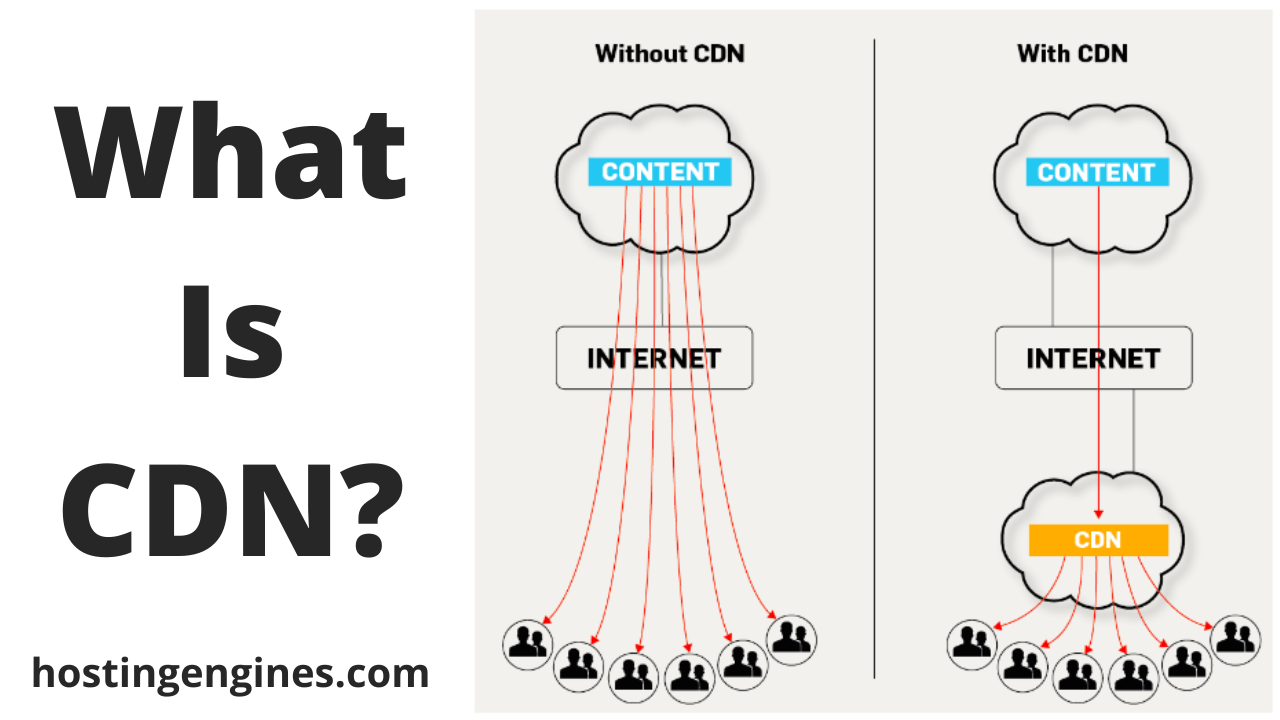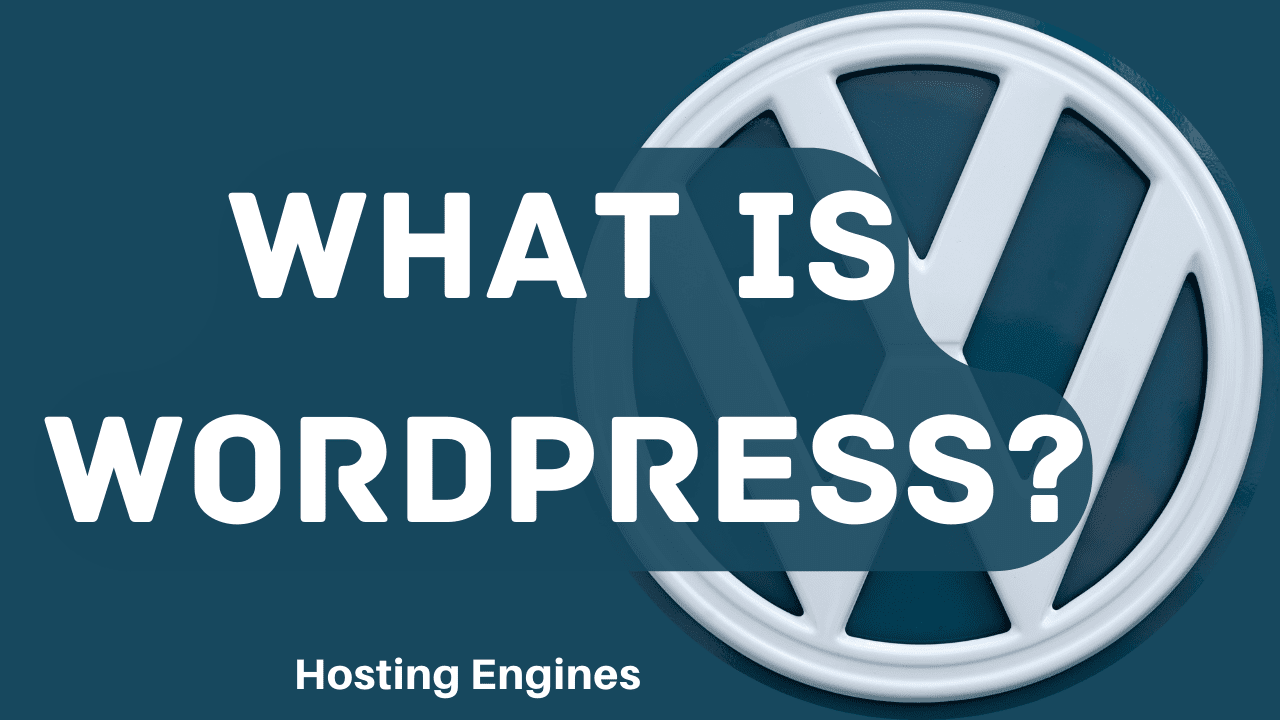Since you are here reading about what CDN really is, I assume that you are familiar with the frustration of website outages, service interruptions due to technical failure, or hardware failure.
Several websites suffer from traffic overload, and their performance often doesn’t meet end-user needs and others suffer from a long loading speed time which leads to not satisfied customers. This is where the needs of CDNs come in.
After you read this article, you will learn everything about Content Delivery Network “CDN” is, how it works, why you might need a CDN, and more. Starting with what is CDN?
What is a CDN?
CDN or Content Delivery Network (Sometimes known as Content Distribution Network) is a concept of decentralizing the process of service delivery, with the purpose of reducing the faultiness and error rate of origin network servers, in addition to enhancements in performance and response time, to meet the needs of the modern website market, and to make up for many of the flaws of conventional web hosting.
A CDN consists of servers systematically distributed on a geographical basis, and a proper choice of server locations, along with appropriate user proximity, ensures that content is always available at a satisfying performance rate.
In simple terms, CDN is a system of servers that deliver webpages, videos, and other content to visitors from the closest server with high availability and high performance.
Why Use CDN?
CDNs are used to improve website performance and loading speed by distributing web content across multiple servers in different locations to reduce the distance between the user and the server, so, the desired content can be delivered to the user from the server that is nearest to them.
also, CDNs improve website reliability, SEO rankings, global reach, and reduce server load while saving bandwidth. They also enhance security and offer cost-effective scaling for growing websites.
Read: Benefits of using CDN
How does CDN Work?
What makes CDN a more efficient approach to availability is the use of different technologies and techniques of optimization, simplification, and measurement.
A Content Delivery Network works by distributing and delivering web content through a network of placed servers to users in an efficient and optimized manner.
It replicates static content from the original server to these edge servers, which are scattered globally.
When a user requests content, the CDN’s DNS server directs the user to the nearest edge server.
If the content is in the edge server’s cache, it’s delivered quickly; if not, the edge server fetches it from the origin server.
CDNs also balance traffic, enhance security, and provide insights.
This process improves website speed, reduces latency, and ensures a reliable, efficient, and secure content delivery experience for users worldwide.
How Does CDN Improve Website and User Experience?
Content Delivery Networks improve website performance and user experience by using placed servers to reduce data travel distance, caching content to decrease load times, and distributing traffic to prevent server overload.
CDNs also enhance security against DDoS attacks, optimize content delivery through compression and smart caching, and handle SSL encryption.
They separate static and dynamic content, employ intelligent caching strategies, and enable global scalability.
Overall, CDNs boost website speed, minimize latency, enhance security, and provide a reliable content delivery system for users worldwide.
What is the difference between CDN and Web Hosting?
This question always comes up when someone hears about how CDN works. They get confused when they hear that CDNs can deliver webpages requests. But this is not the whole story.
In traditional web hosting, content is stored in a single server, and this server is responsible for handling and responding to all user requests.
This can lead to performance problems such as delay in response, downtime, traffic overload, risk of DoS (Denial of Service) attacks, and irrelevance of distance in request routing, i.e. a request from anywhere on earth must be handled and responded to by the same server, increasing potential latency.
CDN, On the other hand, handles most of these problems gracefully, through the use of the aforementioned techniques, and more.
However, this does not mean that CDNs can take the place of web hosting, but rather, CDNs are used to enhance the overall performance of hosting, by creating a network of servers for request handling. But web hosting cannot be abandoned.
Are CDNs secure?
Taking a quick look at the downsides of web hosting makes it a no-brainer that CDNs are of great importance to the advancement of the field of web and websites.
But the contribution of CDNs is not only to non-functional attributes like performance but also to the very important functional requirement of security.
An unsecured website is unlikely to go very far in terms of growth and popularity. In fact, insecurity can lead to the website being infamous, getting blacklisted, and being known for being a website to avoid.
And in regard to security, CDNs provide a great improvement through the use of security mechanisms such as specialized mechanisms encountering DDoS attacks, Web Application Firewalls, and other different security mechanisms.
Of course, as with all cybersecurity applications and implementations, one can never claim that a certain system or service or website is completely secure, and is perfectly impenetrable.
Nevertheless, remarkable progress is being made in the field of security in CDNs, and new security mechanisms are created and implemented consistently, in response to new vulnerabilities discovered continuously.
What are the benefits of using a CDN?
We now know many of the plus sides of CDNs, so here they are listed clearly and concisely:
- Greatly reduce requests response time: CDNs are used to reduce the time it takes for web pages or other content to load. It does this by storing files on servers that are geographically closer to the user.
- Less likely service outage: CDNs are a great solution to avoid service outages. They are a network of servers that store copies of your website’s content, so when something happens to the origin website, CDN will deliver a copy of the website.
- Better balancing of network traffic: CDN provides better balancing of network traffic than a single server by caching content close to the end-user.
- Higher availability to end-users: The CDN provider is responsible for delivering content to the end-user, while they are uploading and downloading data from their servers. So, they offer a way to improve the end-user experience by providing content closer to the user.
- More efficient overall cost-to-value ratio: The reason for this is that CDN providers offer better pricing structures than cloud hosting providers, which means you get more for your money.
- Notable and consistent security improvement: CDN provides more security to a website because it stores copies of data in different locations and only requests from the nearest location. This way, it can limit the damage of a cyber-attack and also reduce the load on one server.
Who should use CDN?
All this might seem compelling, but should everyone use CDNs? The answer is no. CDNs are only really needed by global-range content providers with high traffic, and websites with high availability demand. But it might be wiser to avoid using a CDN when centralization is essential, for example:
- CDNs are not a great choice when complete control over certain files and user servers is needed. In such cases, the use of a CDN may pose a security/privacy threat.
- When using a CDN, you’re hiring a third-party provider that is fully responsible for the delivery of your content, this means that in case of a service outage, there’s little to nothing you can do.
Therefore, if tolerance for such cases is low or non-existent, CDNs are probably not for you.
What to look for when applying for a CDN provider?
If you think a CDN is right for you, you’ll be wondering, what now? Where do I go from here? So let’s dive right in by knowing what we’re looking for when choosing our CDN Provider:
- Reliability: perhaps to any content provider, the most important aspect of delivery is consistent availability and overall performance. So these are necessary for a reliable CDN provider.
- Security: As you would expect, some CDNs are more secure than others. The CDN of choice doesn’t have to be the most secure one unless the content is security-critical. But it has to be secure to some degree, as needed by the type of your content.
- Privacy: There are some concerns regarding user data collection by CDN providers, and the way in which this data might be used is obviously a major issue. So, it’s important to know clearly how exactly providers collect data, and how they use it.
- Geographical range: CDNs have different coverage of geographical ranges, this helps you choose the most suitable provider, according to your geographical area coverage needs.
- Pricing: different providers offer different pricing plans, for different packages and services, so choose one with a pricing plan that suits you.
Popular CDN Service Providers
There are several CDN providers, each with their own pricing plans, and some have their known thrive areas. Some of the most widely known are:
- Cloudflare: Offers a free plan, user-friendly, feature-packed, top-notch performance, advanced configuration options, and performance-optimization features.
- Fastly: Offers a free plan, with the main focus on latency reduction and configurability, one of the fastest CDN providers. Offers unique optimization and request-minimization features. Regarded as not novice-friendly.
- Amazon Cloudfront: Offers useful analytics and high configurability, but a complex interface, and an even more so pricing plan which can be quite tricky for inexperienced CDN users.
- CDNetworks: Focus on limited-access areas, such as Africa and the Middle East. Offers remarkable performance enhancement, with security features. But has somewhat limited configurability.
- StackPath CDN: offers reputable ease of use and is beginner-friendly. Flexible plans include particular services or full-package services. Also offers security services.
- KeyCDN: if you’re looking for a quick, easy, and affordable CDN then KeyCDN is the place to be! Great pricing deals and notable ease of use, but with lower prices comes lower performance.
- Incapsula: A great choice for security requirements, one of the best in the business. Their speed and performance measurements are not quite at the top, but they are a favorable choice when it comes to security.
These are some of the best-known CDN providers, if you feel like no particular provider will cut it for you, the use of Multi CDNs is an option you can look into, combining more than one CDN to provide even more improvement of performance, and to make use of unique key features of more than one provider.
The Conclusion: What is CDN
Content Delivery Networks are becoming more popular due to the huge difference they make to web hosting.
The number of options in the CDN market benefits content providers greatly, as competition leads to improved services and price plans that best serve clients.
Some CDNs offer simplicity that makes you no more than a few clicks away from greatly improving your website and guaranteeing better user satisfaction.




